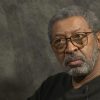By Caribbean News Now contributor
ST GEORGE’S, Grenada — According to preliminary results published by the Parliamentary Elections Office, with 99 percent of polling stations reporting, Grenadians appear to have decisively rejected seven proposed constitutional amendments in a referendum on Thursday.
Notwithstanding a plea from Prime Minister Dr Keith Mitchell to his countrymen to show up at polling stations and let their votes count, a little more than 30 percent of the 71,241 registered voters cast a ballot in the referendum.
“This process has always been about is all about how we deepen the rights of Grenadians, expand the people’s access to justice, build a stronger platform for greater economic sustainability, develop the process of democracy, strengthen the concept of governance and eliminate the opportunity for political excesses. We would therefore be making a mistake if we all turn our backs on this historic opportunity,” Mitchell said in a national address on Tuesday night.
The Caribbean Court of Justice Amendment Bill sought to replace the London-based Privy Council with the CCJ as the final court of appeal for Grenada and to rename the Supreme Court of Grenada and Associated States as the Eastern Caribbean Supreme Court. The Bill also sought to entrench a Code of Conduct as a constitutional provision for public officials and to entitle public officials to swear allegiance to the state of Grenada instead of to the Queen.
Other issues that Grenadians voted on and rejected included:
• a proposal to change the country’s name to “Grenada, Carricou and Petite Martinique”;
• to establish a fixed date for general elections;
• to amend the constitution to bar anyone from serving more than three consecutive terms as prime minister;
• to establish an Elections and Boundaries Commission;
• to authorize the governor-general to appoint a leader of the opposition from the party getting the second highest number of votes, if one party wins all the seats in general elections. That leader of the opposition would be entitled to sit in the House of Representatives and perform all the constitutional functions of a leader of the opposition;
• to establish a fixed date for elections which must not exceed five years, following any dissolution of Parliament; however Parliament may be dissolved sooner than the fixed date if there is a successful “no confidence” motion in the government;
• to expand the fundamental rights and freedoms of individuals including rights of citizens under arrest; (ii) to protect intellectual property; (iii) to protect children generally, whether born in or out of wedlock; (iv) to guarantee public funded education to all children under the age of 16 years and those with disabilities under the age of 18 years;(v) to guarantee gender equality so that both men and women shall have equal rights and status in all spheres of life; (vi) to establish directive principles regarding: (a) the protection of the environment; and (b) the establishment of an enabling environment for persons are physically, visually, aurally and or mentally challenged.















